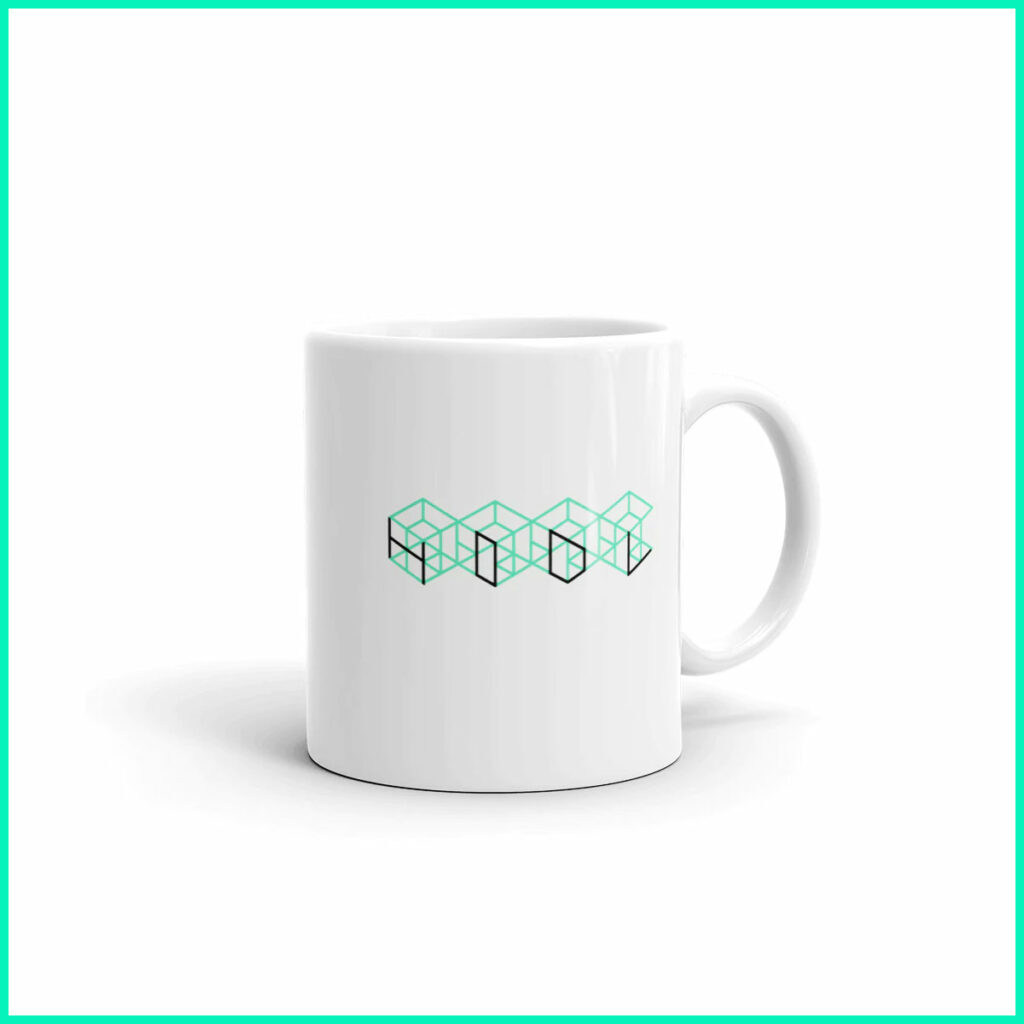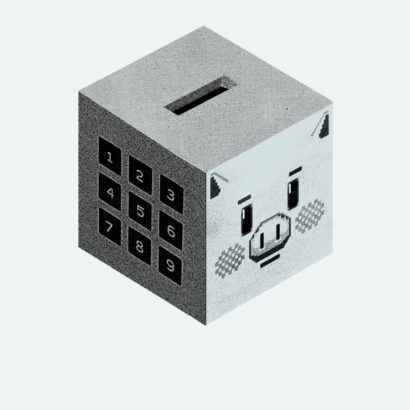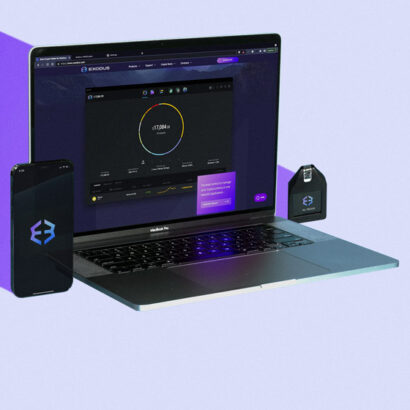What are the Risks of Buying and Storing Crypto?
Getting started in crypto is an unfamiliar and uncomfortable situation — buying, storing, trading, sending and using crypto certainly involves risk. Being cautious and even skeptical is warranted.
A lot of this is very similar to using online banking or trading, but there are also completely new concepts and processes that you’ll want to get right from the beginning because ultimately you alone are responsible and customer support can be limited.
Understand the potential risks, set things up properly and you won’t have much to worry about. People who understand risk can prepare for them.
Seems obvious.
Also, you’re a bit of newb.
But not for long.
This Beginner’s Guide will clarify the actual concerns that every beginner needs to be aware of, in advance of taking on any risks.
We’ll show you exactly how to manage each of them accordingly.
None of this is too difficult btw.
Like I’ve said to my Dad:
“If you can send an email and use online banking — using a crypto wallet is not much different.”
Get ready to move forward with confidence.
Four key things you’ll need to understand about crypto:
Our Loss is Your Gain.
First off, let’s get something important out of the way – we’ve been through the best and the worst of times investing in crypto.
Some of us lost a sizable percentage of our crypto holdings by trusting “reputable” crypto exchanges only to have them suddenly disappear with customer funds. This has happened way too many times. Celsius, Voyager, BlockFi and of course FTX… all went down and took customer’s funds with them into Chapter 11.
Some of us have lost funds because an IT person had access to a password stored on a server.
We’ve had hardware wallets and books of handwritten passwords go missing.
Each and every one of these things are just as bad as you’d think they’d be.
It’s always going to be painful to admit to making mistakes — but here’s the takeaway: it is not going to happen again.
None of us are worried. Now that we understand ownership and self-custody, there’s no reason to be exposed to these kinds of risks.
Loss and theft are preventable.
We have control over our digital assets and we understand the risks of leaving crypto on centralized exchanges.
The only time you lose
is when you don’t learn
from your experience.— Chuck Norris
About this Guide
This Guide is not going to recommend that you buy anything. And as it says in the disclaimer at the bottom, nothing here is investment advice.
This is all about managing risk by having control over your assets, not reacting to price fluctuation. That’s trading. Or FOMO.
The purpose of this Guide is for you to gain confidence because you’ll know how things work and what to do. You’ll know how to use a reputable crypto exchange to buy crypto with fiat, and you’ll understand the difference between custodial accounts and self-custody wallets for storage. You’ll see why it matters.
1
Crypto is a Highly Volatile Asset Class.
You know this. Everyone knows this by now.
Also if you think you’re going to get rich overnight, you might want to think again. Maybe you’ll get lucky and buy right at the bottom — and then take profits… right at the top. But chances are you’re better off playing it safe and like someone said:
Time in the market beats timing the market.
It’s a rollercoaster.
Plan ahead and invest only what you can afford to lose.
Consider a strategy like Dollar Cost Averaging (DCA) to avoid reacting to market fluctuations and emotional bias.
Don’t obsess over charts and candles. No one has a crystal ball.
Remember that in 2020 Bitcoin fell by 40% in a single day! Right at the start of the pandemic. (dropping to approx. $5000 USD).

But by the end of 2021 it was up all the way to around $60k. 
Aaaaaand by the end of 2022 BTC is listed at closer to $18k.  via CoinGecko
via CoinGecko

National Lampoon’s Vacation
Despite the ups and downs, Bitcoin seems likely to easily outperform the US Dollar over time.
2
Where to Buy Crypto with Fiat.
In GUIDE 2 Buy Your First Bitcoin we’ll go through exactly how to set up and and register on a crypto exchange in detail.
Here’s what it comes down to:
You need to register and set up a crypto exchange account to buy crypto with fiat.
We recommend Coinbase or Kraken. Newton is good for Canadians.
These are trustworthy and easy to use. (In our expert opinion)
User reviews are overwhelmingly positive on both the Apple App Store and Google Play.

Both of them show Proof of Reserves, which means that they actually hold the crypto that they claim to have in their custody.
(You buy your Bitcoin and Crypto on an exchange, but you do not need to leave it there.)
|
Our Picks |
Kraken | Coinbase | Newton (🇨🇦) |
|---|---|---|---|
|
Buy Crypto (with Fiat) from these Reputable Exchanges
|
 |
 |
 |
|
Overall Rating |
★★★★★ | ★★★★☆ | ★★★★☆ |
Not your Keys,
Not your Crypto.
— Everyone says this
Leaving any crypto on a centralized exchange means that you are trusting them as a custodian.
This is risky.
Does it mean that they’ll take your money and run? Probably not. But be you have to be aware that you do not have the actual control of these assets if the exchange is holding them for you.
A custodial arrangement is just like a traditional bank.
If you wanted to send or withdraw your money, you’d make a request and your bank would make it happen. You are their customer. This takes a bit of time to process and usually costs you a service fee, but it’s generally not a big concern for most people. We’re used to it.
In crypto you can choose to leave your Bitcoin in the exchange account, but it presents you with a small risk.
And again, we all saw what happened to FTX customers.
🤯
Why would anyone choose to leave their crypto on a centralized exchange?
There are two reasons:
1
It’s Convenient
If you bought the Bitcoin there, it’s easy to leave it there (simply by doing nothing else).
Also, some people might not know how or where to move their assets to once they decide they want to move into self-custody.
This is sort of understandable but not a good reason.
It doesn’t account for risk.
Do this instead:
Think of your crypto exchange account like it’s a public restroom.
Go in, do what you need to do, and leave. There’s no reason to stick around any longer than you have to.
In other words, buy crypto and then move it off your exchange and into self-custody.
2
Earning Rewards
We all want to earn passive income on our crypto.
Exchanges will make this happen. They pay you to leave your crypto with them so they can loan it out to other customers.
You can earn an APY of close to 20% on certain cryptos. Bitcoin is nowhere near that much (1%) but there are several that pay out a decent return. If you’re not going to sell your crypto, it make sense to consider staking and earning until you eventually decide to take profits.
Here are the staking rewards rates on Kraken.
Cosmos (ATOM) is consistently one of the top cryptos to stake and Kraken pays you 12—15% APY.
Over on Coinbase it’s pretty much the same deal, except the APY on ATOM is only 5% (at the time of this writing).
Again if you decide to trust your exchange, you can leave your assets there and earn, but what about what happened to FTX? Or BlockFi, Genesis, Voyager, and even QuadricaCX in Canada a few years ago?
Oh and speaking of Canada, the Canadian Government decided to freeze the bank accounts and crypto exchange wallets of people who donated to a cause that was critical of their covid mandates. Despite what your political beliefs are, that is not ok in a western democracy.
All these share a common (central) problem.
In all of these cases the people who lost money either trusted their exchange, weren’t motivated enough, or both.
Do this instead:
Set up and use a private non-custodial crypto wallet that allows you to stake and earn.
Keep reading.
3
Move your Crypto into a Private Self-custody Wallet.
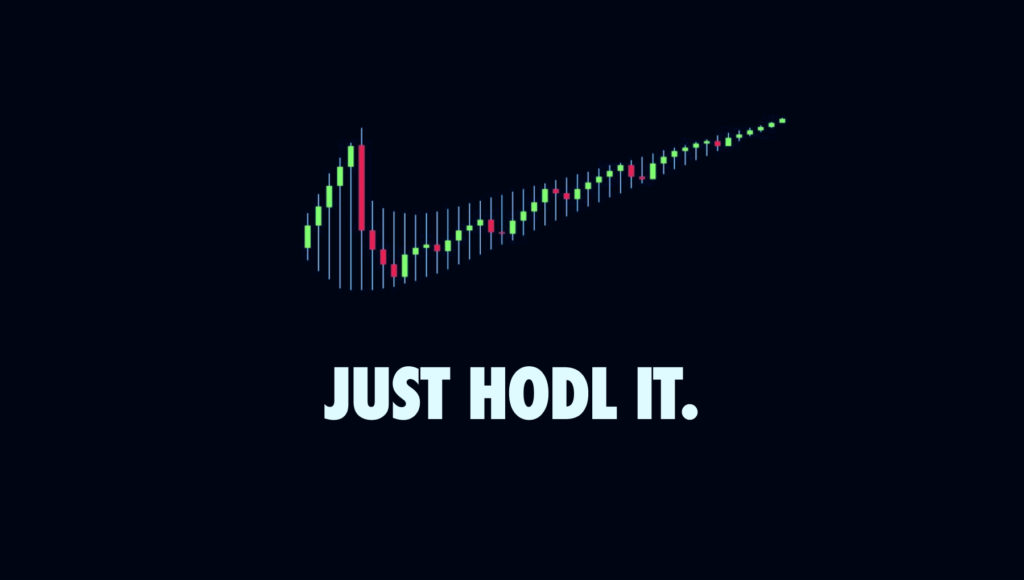
Our favourite and most recommended self-custody crypto wallets are Exodus and Ledger.
Both of them allow you to control your own assets (you hold the Private Keys).
There’s no KYC registration or phone number needed for private wallets— instead you set up an account that can be quickly restored using your Recovery or Seed Phrase if you ever lost your phone or laptop.
To access sending, swapping or receiving crypto you’ll unlock your wallet (App) with a PIN number.
Note:
Crypto wallets (even private ones) don’t hold crypto. Instead your wallet provides you with direct access to different blockchains. In other words, you get a unique public address for each crypto you hold along with the ability to use them (spend/send/receive).
Unlike physical assets, crypto is never moved from its respective blockchain. It’s never actually on phones or in apps or wallets. The only thing that ever changes hands is the permissions to send or spend it (Private Keys).
You can download Exodus and/or Ledger Live for free and easily send your assets onto it from your exchange. Exodus is a hot wallet meaning that it’s an app on your phone or computer.
Exodus
Exodus is our Top Pick almost every year for best overall Bitcoin and Crypto wallet.


Exodus
Exodus lets you do everything that you’re likely to want with your crypto. It’s non-custodial, private, secure, very user-friendly, and best of all… it’s free.
A recent update now allows you to access Web3 apps.
Exodus has cold storage covered by partnering with Trezor.
For most people this is the one crypto wallet they can use both day-to-day, and for secure, long-term HODLing.
Ledger is a physical device that you need to purchase.
The Ledger Nanos (or newer Stax) wallets work in concert with their Ledger Live app. It’s also a great option and the added security can be essential if you’re managing more crypto.


Can I stake crypto in a private wallet?
Yes indeed. And both of these wallets have got you covered — along with many other great features, they allow customers to stake and earn while retaining the sole control over the Private Keys.
Exodus
Exodus allows you to stake several cryptocurrencies including:
ALGO, ATOM, ADA, MATIC, SOL, XTZ, ONT and VET.
Compare the APY earned by staking ATOM with the top exchanges we listed above. You’ll see that staking on Exodus is paying 20% APY (give or take).
That is not bad at all.

Here’s the list/rates for staking different coins on Exodus.
Ledger Live
The big advantage to Ledger is that you can use a cold storage wallet like the NanoX or Stax wallet to keep your assets offline when not in use.
You manage everything on your computer except that when you want to do anything that requires permission, you need to connect the actual device and authorize it.
Ledger let’s you stake these coins.
In our experience Exodus is easier to set up and still very secure. It even offers a cold storage integration via Trezor.
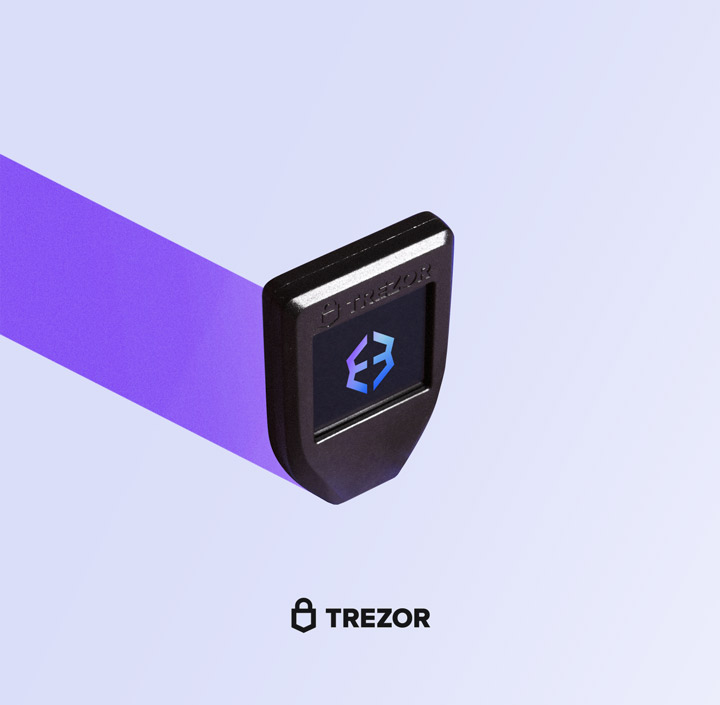
Ledger offers the extra layer of security because it’s offline when not in use. Then you can store a Ledger device in a safe or safety deposit box.
You could also have a few Ledgers with different assets on each.
FAQs
See if any of these sound familiar:
I’m not sure I'm ready to “Be My Own Bank".
Fair enough.
It is a bit more effort than having someone else take care of everything for you. Crypto is going to take a bit more effort, but it can also be much more rewarding.
There are custodial services for crypto but Exodus wallet is free and pretty straightforward.
Everything is really all up to me?
This is mostly true.
With great power comes great responsibility.
But you’re not going to be editing source code or minting NFTs. All this “responsibility” mainly comes down to managing passwords and using the right tools.
It should be fine.
If anything goes wrong it’ll be all my fault because of something I didn’t quite understand at the time.
Possible but unlikely.
First of all, you’re reading this guide and paying careful attention.
If you continue to ask questions, move slowly and understand the most important concepts from the beginning you’ll ensure that you are doing the right things in the right order.
When you have to make decisions, they’ll be well informed.
Keep reading.
Could I lose everything by losing my phone or forgetting my password?
Extremely unlikely.
With a little planning you’ll never have a single point of failure, and none of your crypto will ever be lost because you can always recover your wallets with the Seed phrases you got when you set them up.
Passwords, recovery and security are important topics that need to be covered in more detail.
If my passwords were discovered or lost, I'd lose everything.
Yes. This is true.
If you lose your Recovery or Seed Phrase you’re in trouble.
A) Without it you wouldn’t be able to restore your account.
B) If someone else finds this (and knows what it is), they can easily access everything in that wallet. Even if they don’t have your physical device like a Ledger or Trezor they can restore it onto a new one.
Don’t lose your Recovery Phrases. Keep them safe.
Consider splitting it up and keeping the copies in multiple locations.
I don’t have the time or energy to react to sudden market changes.
Most people don’t want to do this either and there is no need to.
You can always just simply buy and store crypto and not think even about it.
Aka HODL mode.
You can simply buy and store crypto and not think about it.
You do not need to focus your attention analyzing charts and trying to perfectly time trades. And most people shouldn’t. But as you learn more about investing you might want to become more active.
There are many ways to store crypto securely AND earn interest (while hopefully watching them appreciate).
Drink coffee. Go for a walk.
HODL
Buy this:
I’ve missed my chance to get into crypto sooner. If I’d done it back when I first thought about doing it…
Ok sure. Nobody cares about something you didn’t do.
You shouldn’t either.
Absolutely everyone can make the case that they could have bought a bunch more of crypto XX waaaay back when they first heard of it. Then sold it at the all time high.
For example, I could have easily bought this neon green Lambo if I’d just bought a few Bitcoins back in 2015.
It’s not like it didn’t think about it – I just didn’t do it.
Then again I could very easily have lost those BTC by now too.
Key takeaways:
Focus on the future.
Nobody knows exactly where things are headed (including us) and we are not offering any financial advice.
However volatile, cryptocurrency and blockchain technology still appears likely to grow and to continue to be adopted more and more widely. In our opinion, if you can afford to invest in anything right now, how can you afford not to at least consider this new digital asset class?
Remember, don’t invest more than you can afford to lose or use funds that you’ll need back within a short timeframe.


